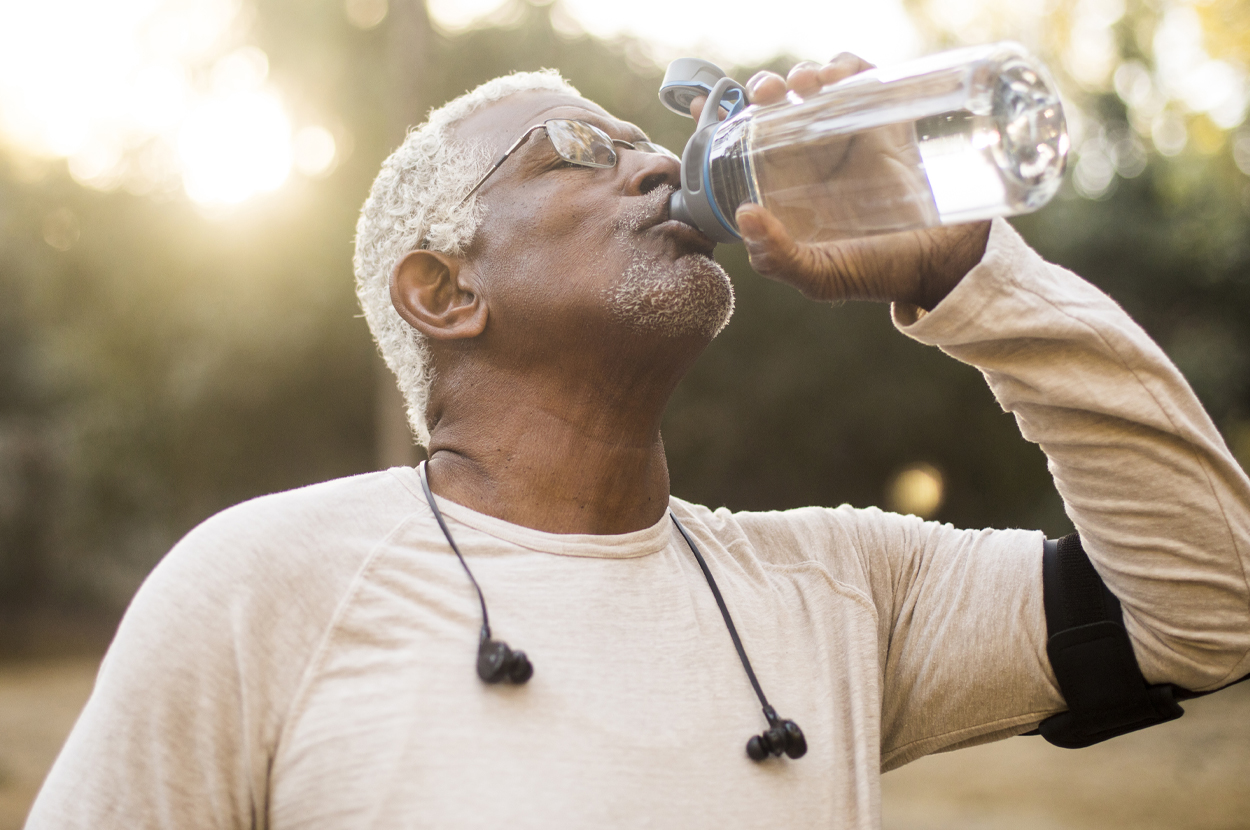When the body does not get enough water to fulfill its needs, it becomes dehydrated. The dehydration may be mild, moderate, or severe depending upon the amount of fluid deficiency.
Causes of dehydration
Some common causes of mild dehydration are as follows:
- Excessive sweating
- Diarrhea and vomiting
- Some medical conditions that cause excessive peeing, such as diabetes mellitus
- Brain abnormalities that keep a person from getting thirsty
- Forgetting to drink water due to a busy schedule.
- Lack of access to water
- Medications like diuretics
- Fever
Symptoms
The most common symptoms of mild dehydration are as follows:
- Thirst
- Excessive dry mouth and throat
- Highly concentrated urine (deep yellow)
- Headache
- Muscle pain or myalgia
- In children, crying without tears
- Lack of energy
- Low blood pressure
Complications
If dehydration is severe, feelings of thirst may be reduced and blood pressure may drop, causing dizziness or fainting, especially when standing up (a condition called orthostatic hypotension). If dehydration persists, shock and severe damage to internal organs, such as the kidneys, liver, and brain can occur.
Brain cells are particularly sensitive to severe levels of dehydration. As a result, confusion is one of the best indicators of the severity of dehydration. Extremely severe dehydration can lead to coma.
Treatment
Mild dehydration can lead to complications, so prompt medical treatment is required. Your medical provider may provide the following treatment plans for dehydration:
- Fluid intake is the most common. Drink fluids and electrolytes if there is no nausea and vomiting. If drinking is not possible, fluids may be given intravenously.
- Remove yourself from a hot environment and cool down the body either by air-conditioning or with cool water.
- In case of fever, over the counter acetaminophen can bring down temperature
- Remove clothes or shoes to lower body temperature.
Treatment should also be directed at the cause of dehydration. For example, if there is nausea and vomiting or diarrhea, medications may be needed to control or stop these issues.
Contact us
In case of urgent medical care assistance, AfterOurs Urgent Care offers immediate telemedicine services through telemedicine appointments, where medical providers are available to offer assistance. Anyone who experiences signs and symptoms requiring urgent medical attention can simply book their appointment with AfterOurs Urgent Care to directly talk to an expert. If your medical issue is not appropriate for telemedicine, we will let you know and refer you to an in-person facility.
When to visit a doctor:
If you are feeling lethargic and dizzy and have less urine output, that you think needs immediate medical assistance, it is best to consult with a medical professional.
Treatment for dehydration is available at AfterOurs Urgent Care.

